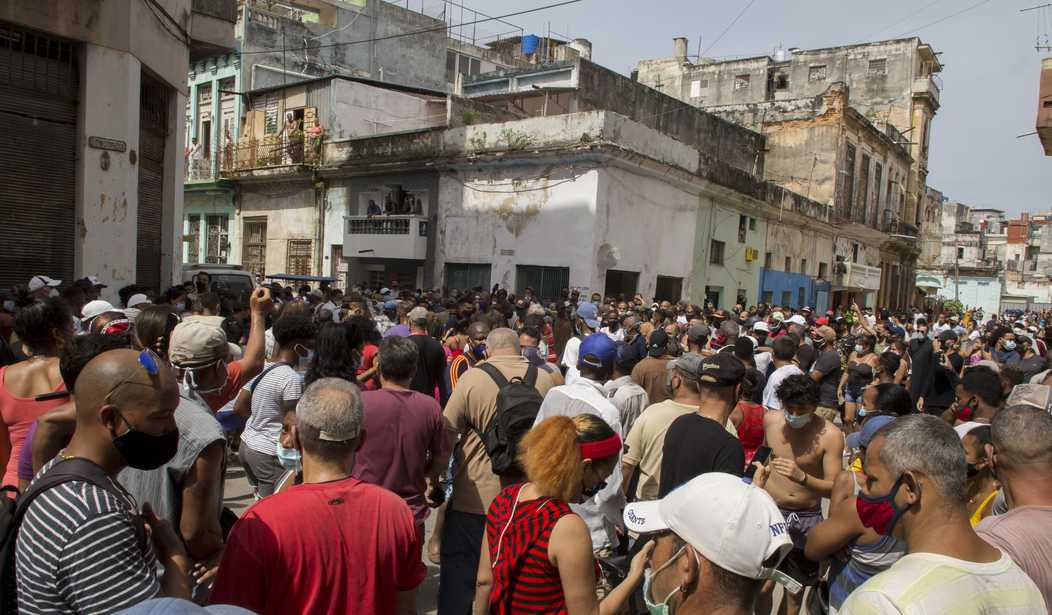The Communist country of Cuba is failing. Late last month, Cuba went hat in hand to the UN begging for help. Bloomberg reports that Cuba has been "Hurt by tightened US restrictions, decaying domestic production, a weak post-Covid tourism industry and indifference from its allies." This has led to Cuba's "worst economic days since the collapse of the Soviet Union more than three decades ago."
In 2021, another economic crisis led to huge protests that the government brutally suppressed. This led to a wave of Cuban migrants fleeing the country to come to the U.S. This wave of Cuban migration was made up largely of young, educated Cubans who had given up hope in the Communist system. Their departure signaled the beginning of the end for the socialist regime.
The food shortages have been bad enough. But then came the blackouts due to the growing energy shortage. This drove people into the streets, shouting for "food and power."
Once you get past the finger-pointing, what we’re witnessing is the collapse of Cuba’s socialist regime. This transition could take decades. Or it could happen in much the same way as that great Cuba aficionado Ernest Hemingway once wrote of bankruptcy: “Gradually, then suddenly.” One thing is clear: The crisis can’t be fixed without fundamentally changing the country’s centralized, state-controlled model where bureaucrats rule over every aspect of public life. That political change, which must come from within Cuban society, threatens the survival of the regime and the future of the revolution, an unacceptable risk for the well-fed old guard that still runs the country. That’s the essence of the conflict right now.
In the last two years, more than half a million Cubans have come to the United States by entering illegally after traveling through Mexico. If the Cuban economy collapses, how many of the 12 million citizens will make their way here?
I'm old enough to remember the Mariel boatlift. More than 125,000 Cubans crossed the 90 miles of ocean to come to the U.S in 1980. Castro took the opportunity to empty his jails, leading to a huge crime wave in Miami that scars the city to this day.
Now imagine 10 or 20 times that number following an economic collapse in Cuba.
Yet the most foreseeable scenario now is one of uncertainty and chaos. Some US lawmakers might celebrate a sudden collapse of Cuba’s regime as a policy success. But if that did happen (a massive if, I know), no organized opposition is waiting to take over and correct the ship’s course. We don’t know what the reaction of the Cuban military would be either. As William LeoGrande, a longtime Cuba-watcher and professor of Latin American politics at the American University School of Public Affairs, told me, “the result could be a failed state with mass migration and transnational criminal organizations establishing a foothold. That would be a much bigger problem for the United States -- a potential disaster.”
Right now, Cuba is in denial. The Communist government has hiked the price of gasoline 500%, trying to close a massive budget deficit estimated at nearly 20% of GDP, in order to contain sky-high inflation.
In addition to asking the UN for food assistance, the Communists may loosen their hold on the economy and allow for some privatization. But it's probably too late for that. The younger generation has become too cynical to believe the empty promises of the revolution and they will continue to leave the island, making the "brain drain" a continuing problem.
If Cuba asks, the U.S. should help while demanding reforms that will allow Cuba to recover. Otherwise, we better set the table for a few million more "guests" joining us.










Join the conversation as a VIP Member